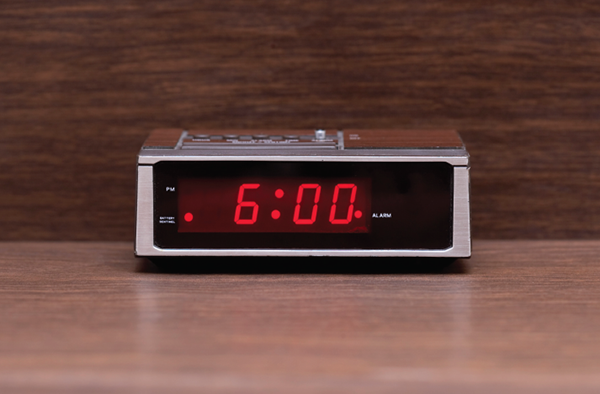Ditch Your Bedtime

How early bedtime makes insomnia worse
Dealing with insomnia? Before you try one more thing, it's time to trade in your bedtime for a wake up time. Really.
According to Teni Davoudian, Ph.D., clinical psychologist at the OHSU Center for Women's Health, forcing yourself to go to bed at a certain time every night can actually make insomnia worse.
"Women tell me all the time that they make themselves get in bed by 9 or 10, but then they lie awake for three hours," she says. This is a problem because hours of tossing and clock-watching bring stress and anxiety into your bedroom, which should be a calm and comfortable space.
Moreover, going to bed at the same time every night really doesn't help regulate your sleep cycle at all. If you have insomnia, instead of a bedtime, you need a consistent wake-up time.
"When you first wake up, your body starts to build sleep drive," says Dr. Davoudian. "The more sleep drive you build, the sleepier you get at the end of the day. If you wake up at the same time every day, then your sleep drive will build consistently. This helps get your body clock in sync, and over time you'll start feeling sleeping at a reasonable time in the evenings."
There are many tips out there for sleeping better, including those listed below, but Dr. Davoudian wants insomnia sufferers to know that none of them will be very effective if you haven't first established a consistent wake-up time. It's really the best –and only –place to start when treating insomnia.
So this means no more sleeping in on weekends for a while.
"People understandably don't like this," Dr. Davoudian says. "But remember that it's temporary. Once your sleep gets better, you can back off and sleep in a little more some days."
And the good news is, your days of having a bedtime are over. "If you have insomnia, don't go to bed until you're so tired that you can't keep your eyes open," Dr. Davoudian says.
Once your wake-up time is in place, here are a few more tips to try to help resolve insomnia:
- Relax before bed. Before you sleep, do activities that are physically and emotionally relaxing for you. Over time, your body recognizes these as pre-sleep activities and the association helps you fall asleep sooner.
- Pay attention to your space. Make sure your bedroom is quiet, dark, cool and comfortable –ideal for sleeping.
- Follow the four-hour rule. Avoid things that cause sleep problems within four hours of when you usually fall asleep:
- Intense exercise. While great for your health earlier in the day, strenuous exercise before bed can keep you awake.
- Stimulants, like caffeine
- Heavy, rich foods or alcohol
- Electronic devices, like your phone, tablet or television
- Don't go it alone. Dr. Davoudian leads a therapy group for women with insomnia. Call 503-418-4500 to find out about upcoming sessions.